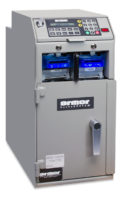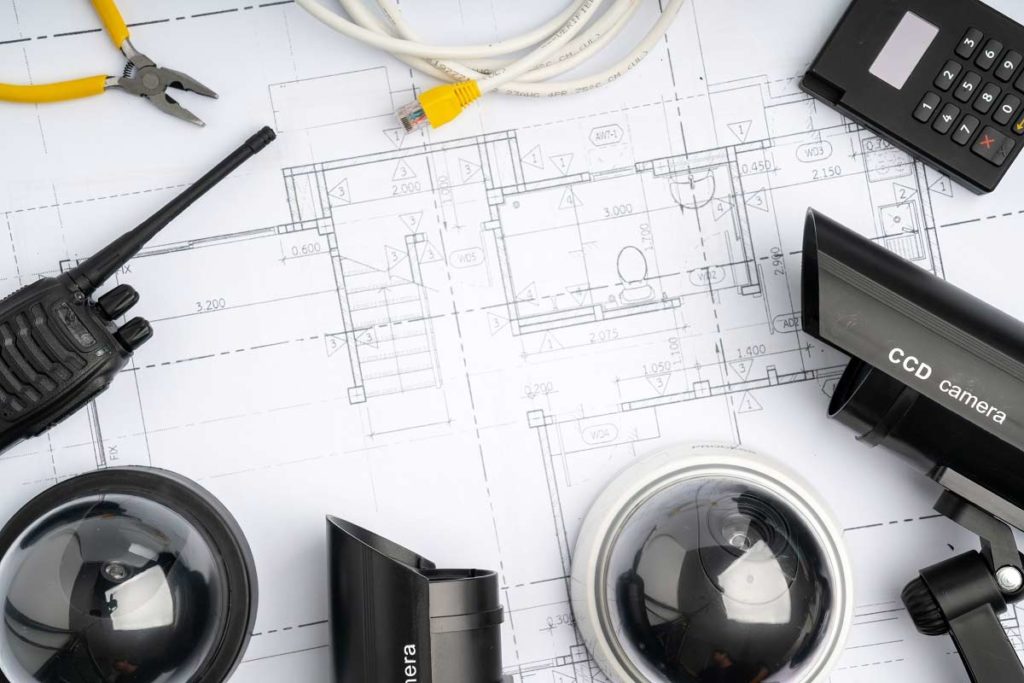It wasn’t that long ago that cannabis was underground, sometimes literally, and operators protected what was theirs any way they knew how. Before legalization, cannabis operators needed to secure their plants, cash, supplies and equipment not just from people who wanted to steal them, but also from law enforcement. The legacy cannabis market is now transitioning into a legal one, and licensed operators are joining the industry at an incredible rate, but security is still part of the success equation. Like before, operators need to protect plants, products, equipment and cash, but they now also need to protect records, privacy and data, and do so in a manner that complies with state regulations.
Cannabis regulatory authorities set security guidelines that cannabis business owners must follow in order to obtain and renew operational licenses. For instance, there are state-specific security regulations regarding video surveillance, camera placement, safes, ID verification, and more. While security measures help protect the business, they also protect the public. It’s a win-win for everyone involved. Here are five best practices and techniques to protect cash, records, products and people.
Hybrid cloud storage
State regulations call for reliable video surveillance footage that is accessible, in most cases, 24/7 and upon demand by cannabis regulatory authorities and local law enforcement acting within the limits of their jurisdiction. SecurityInfoWatch.com reports that video data is the industry’s next big investment, meaning there will be an increased demand and need to store video surveillance footage. Most states require video surveillance footage to be retained for a specific amount of time, often 45-90 days or longer if there is an ongoing investigation or case that requires the footage. While some businesses only retain video data for the state-required length of time, others choose to keep it longer.
Storing data on-site can become expensive and precarious. Best practices call for a hybrid cloud storage solution model as it provides on-site and both public and private cloud data storage solutions. This model provides users with the ability to choose which files are stored on-site and which files live in the cloud. Doing so improves file accessibility without impacting or compromising on-premises storage. In addition, it’s helpful to have two methods of digitizing data, for safety’s sake. In the event an on-site storage method crashes—though hopefully this won’t ever happen—there’s a version available off-site via the cloud. That said, with cloud-based storage solutions come cybersecurity threats that must be managed.
Cybersecurity

Due to the ongoing COVID-19 pandemic, more businesses are online than ever before. Unsurprisingly, cyberthreats are on an upward trend, including in the cannabis industry. Earlier this year, MJBizDaily reported that a data breach exposed personal information of current and former employees of Aurora Cannabis. The incident involved “unauthorized parties [accessing] data in (Microsoft cloud software) SharePoint and OneDrive”. Although this breach involved only employees, confidential customer information is also at risk of being compromised during a data breach.
On a separate occasion, an unsecured Amazon S3 data storage bucket caused a large-scale database breach that impacted almost 30,000 people across the industry, according to the National Cannabis Industry Association. The breach included scanned versions of government-issued ID cards, purchase dates, customer history and purchase quantities. Unlike the Aurora Cannabis breach, this one included customer data.
Just like other more established industries, the cannabis industry needs to protect and secure confidential data. If you don’t have a cybersecurity expert on your team, consider hiring a consultant to evaluate your risk or partnering with a credible cybersecurity technology company to implement proactive solutions. Before signing a contract, do your due diligence. Does the consultant and/or technology company understand the compliance regulations specific to the cannabis industry? Do their solutions meet the regulations in the state(s) where your facility operates? Taking the time to protect your company’s data before a breach occurs is proactive, smart business.
Smart Safes

Smart safes help secure cash handling, which given the difficult banking environment for cannabis companies, means they’re on the list of best practice security technology products. What is a smart safe? A smart safe is a device that securely accepts, validates, records and stores cash and connects to the other cash management technology solutions such as point of sale systems. They connect to the internet and provide off-site stakeholders visibility into a facility’s cash position.
A high-speed smart safe counts cash by hand faster than a human and is an overall more secure way to deliver cash bank deposits. At the end of the night, making a deposit at a physical bank location can be dangerous, exposing your cash and the individuals responsible for making the deposit to unsecured threats. Using a smart safe reduces that threat and also helps cannabis operators comply with financial recordkeeping and documentation requirements. Due to federal cannabis prohibition, many cannabis businesses lack enough insurance to fully cover their exposure to cash theft, which has led to a trending industry-wide investment in smart safes.
Advanced access control
Best practice access control means more than a ring of keys hanging off the facility manager’s belt. Advanced access control gives cannabis business owners and managers the ability to manage employee access remotely via the cloud. This feature can limit access areas within a facility, enabling an individual to revoke access instantly from a remote location making it a useful tool in the event of a facility lockdown or emergency. A mobile app and/or website can be used to lock or unlock secure doors, monitor access in real time and export access logs.
Advanced access control devices aren’t a standard in the industry yet. Although many state regulators don’t require cannabis businesses to utilize advanced electronic access control, using this technology is a best practice and may be required in the future.
Compliance software
Understanding the ramifications and keeping up with state-mandated compliance is challenging. While state regulations can be found online, they’re often in pieces, leaving operators unsure about whether or not they have them all. Once an operator is confident that they have the most current version of all the laws, rules, and regulations that apply to their cannabis business, making way through the dense legal jargon can be exhausting. Even after multiple readings, it can be unclear about how to apply these guidelines to the operator’s cannabis business, which is one reason cannabis businesses work with a trusted legal counsel to meet compliance requirements. For trusted advisors and cannabis business licensees and operators alike, cannabis compliance software solutions are designed to not just check boxes for a cannabis business, but to help everyone involved understand how the regulations apply to the operation. These solutions improve accessibility so that employees at all organizational levels understand the rules and requirements of their position and the products they work with.
In addition, compliance software can help licensees and operators establish and implement best practice SOPs to meet regulatory requirements. Because the cannabis industry is young and many operators are moving fast, many cannabis businesses are vulnerable to security breaches and threats. Prioritizing security and compliance can help cannabis leaders protect against potential threats. Investing in the latest and most innovative security technology solutions—beyond what is required by state regulations—can help operators outsmart those who seek to steal from them and position their companies as industry leaders that prioritize safety and compliance, protecting not just cash and products, but the people who work in their facilities and the customers who purchase their products.







